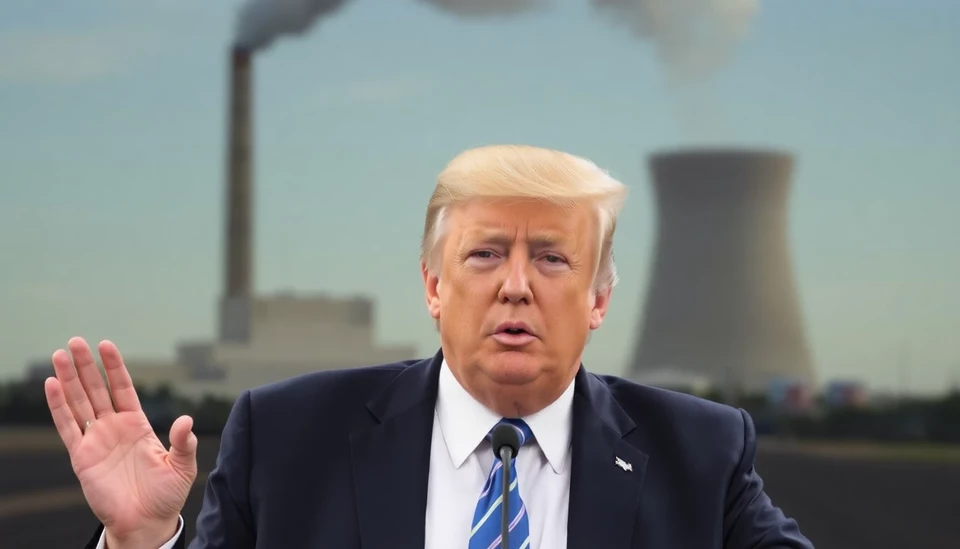
In a recent move that has stirred considerable debate among environmentalists and energy advocates alike, former President Donald Trump has issued an exemption for one of the nation’s dirtiest coal-fired power plants from strict pollution regulations. This decision, part of a broader strategy to revive the struggling coal industry, could have significant implications for air quality and public health.
The specific facility in question is the Rockport Generating Station, located in Indiana, which has been under scrutiny for its high levels of emissions. Environmental non-profit organizations and health experts have long criticized the plant for its contribution to air pollution, citing that its operation contributes to respiratory issues, cardiovascular diseases, and other health-related problems among nearby residents.
By granting this exemption, Trump aims to alleviate regulatory pressure on coal plants, a sector he has continuously championed throughout his political career. Supporters of the coal industry argue that reducing burdensome regulations can help preserve jobs and economic stability in coal-dependent regions. They believe that the revitalization of the coal industry is crucial for maintaining energy independence and affordability.
However, critics of this decision argue that prioritizing coal over cleaner energy alternatives poses a significant threat to both the environment and public health. The exemption raises concerns about increased greenhouse gas emissions at a time when the global focus is shifting towards sustainability and renewable energy sources. Environmental groups such as the Sierra Club have expressed outrage, stating that this exemption undermines years of progress in reducing coal's footprint in the energy sector and combating climate change.
Furthermore, the move is seen as a contradiction to the growing momentum for cleaner energy policies across the country. Many states and municipalities are making significant strides toward renewable energy adoption, with investments in solar and wind technology indicating a clear shift away from fossil fuels. Critics argue that the exemption for Rockport could hinder these efforts, slowing the transition to sustainable energy options.
As legal challenges are anticipated, it remains to be seen how this exemption will be contested in courts or how it will influence the future of coal mining and power generation in the United States. Advocacy groups plan to mobilize opposition against the exemption, emphasizing the need for stricter regulations to protect public health and the environment.
This development comes just as the Biden administration is implementing its own clean energy agenda, which directly contrasts with Trump’s approach. The renewed focus on infrastructure and sustainability from the current administration serves as a critique of past policies favoring fossil fuels.
In conclusion, Trump’s exemption of the Rockport Generating Station from pollution rules marks a pivotal moment in the ongoing debate over energy policy in America. Whether seen as a necessary step for job preservation or as a reckless disregard for health and the environment, this decision is likely to shape discussions around energy regulation for years to come.
#Trump #PollutionExemption #CoalPower #Rockport #EnvironmentalPolicy #CleanEnergy #ClimateChange #HealthImpact #AirQuality
Author: Peter Collins




